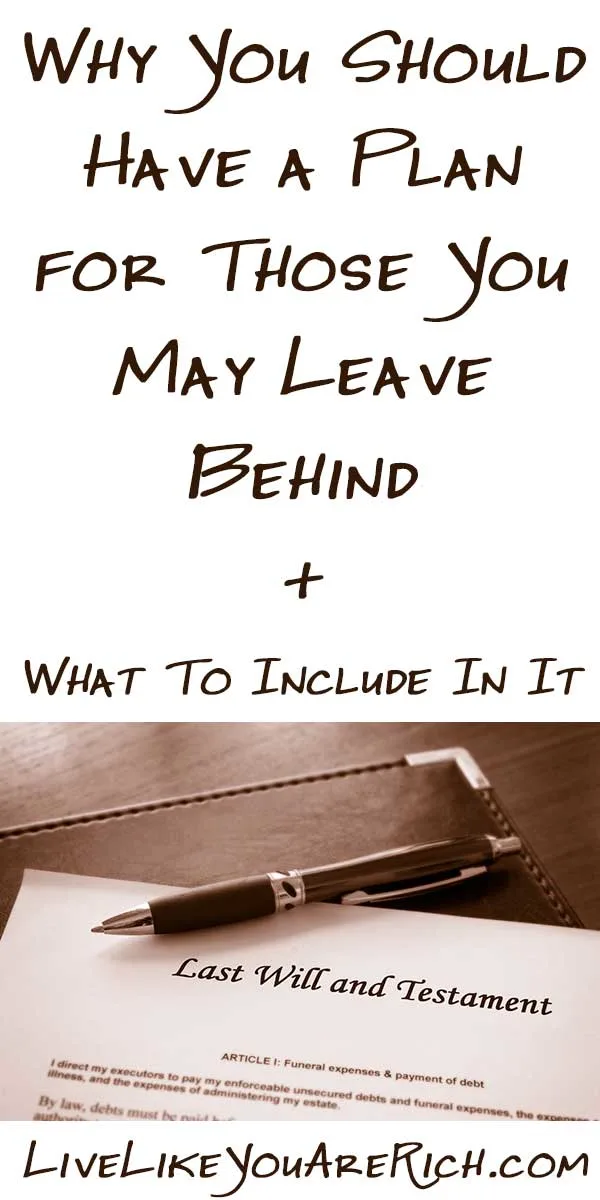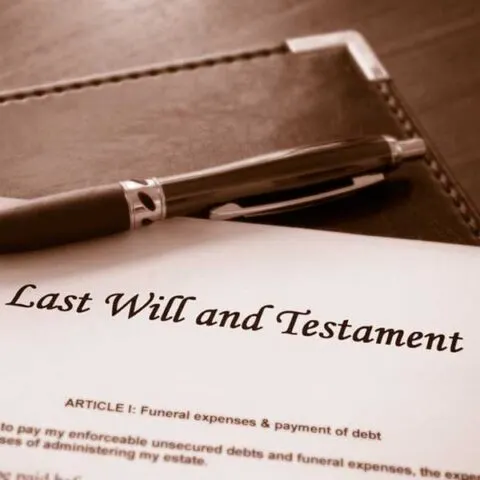Financial guru, Dave Ramsey, notes that the mortality rate for human beings is 100%. Death is what you might call an “unavoidable” inevitability. But thankfully, because we know our ultimate fate, we can plan for it and avoid problems that otherwise result from it. Often loved ones are left with a lot to handle: sadness, loss, stress, adjustment, and grief. If you are unprepared, those closest to you may also be left with the burden to sort through your finances and even go through probate court (a possibly long and costly legal process where the court has to decide who is entitled to your property now that you are gone). This is where “estate planning” plays an important role and why proper estate planning advice is paramount.
You may think “I don’t have an ‘estate’ so why would I need an ‘estate plan?’” Fair question but do not let the name fool you.
If you have any of the following, then congratulations, you have an estate:
- a home,
- other real estate,
- a spouse,
- a business,
- one or more children,
- a savings account,
- a 401(k) or IRA,
- mutual funds,
- stocks or bonds,
- life insurance,
- jewelry,
- a musical instrument,
- electronics,
- a vehicle,
- or personal property.
If you have one or more of these things, you would help yourself and your loved ones by doing some planning.
So where do you start?
There are four basic legal documents that a lawyer can help you create: a will, a trust, a durable power of attorney, and a health care power of attorney with a living will. These four documents will assist your estate in preventing problems, providing solutions, and protecting resources. Proper estate planning advice and documentation is very important. I would recommend using a lawyer to draft or approve these documents. Let’s define them in nutshell:
- Will – A will instructs those you leave behind what to do with your earthly possessions upon your death. It may not come as a surprise, but people tend to fight over things. If you are kind and thoughtful, you will have given instructions to your loved ones concerning who gets what, which not only provides clarity, but reduces the fighting and helps avoid bitter feelings. Leaving a will is a considerate way to show you care. More importantly, if you have young children, a will designates a guardian in the tragic event of the loss of a mother or father. This lessens uncertainty and confusion during a heart-wrenching time.
- A Trust – A living or revocable trust as it is called, provides a way for you to pass your property on to your beneficiaries without having to publicize the record or spend a lot of time and money in probate court. Probate easily costs $2500 and often much more when you factor in court fees, lawyers, and possibly accountants or other professionals. (Probate has cost Prince’s estate over 2 MILLION DOLLARS so far, and they have yet to divvy up the property!) A living trust is particularly helpful if you own a home or other real estate because by law, that requires probate otherwise. The trust allows you to still control and enjoy the property while you are alive. The trust can also reduce tax liability. Upon your passing, the trustee distributes your assets in the manner you directed in the trust, and if there are still young or special needs kids, the trust can support them.
- Durable Power of Attorney (POA) – This is truly a “Peace of Mind” document! If you are incapacitated for any reason (and one in four of us will be for at least a short period of one to two weeks at some point in our lifetime), your appointed agent can make sure your financial matters are addressed. No need to worry about paying the bills, managing the household, or running the business. Your agent, whom you have thoughtfully selected, is authorized to do those things for you. The POA is only in effect while you are living and incapacitated.
- Health Care Power of Attorney & Living Will – Another “Peace of Mind” document! Through this you authorize a person to make health care decisions for you in the event of incapacitation. Your agent can consult with your physician, get a second opinion, choose a treatment, select a care facility, and make other important health care decisions. If you have elderly parents, while you are getting your health care POA, please encourage them to get one made as well! Surveys indicate up to 25% of the population in the U.S. currently cares for an elderly parent full or part time. The “Living Will” piece of this document is actually an “Advance Medical Directive.” “Living Will” is a misnomer. Your Directive indicates your wishes in the event you are on artificial life-support or need to be in order to continue living. Do you want your life prolonged or should nature be allowed to take its course? Do you want pain medication to be administered AND nutrition or do you want nutrition withheld? These and other questions are addressed. Having this document ready with answers to these questions can be incredibly important for your loved ones when in dire circumstances.
I hope this has been informative. If you are motivated to take action, don’t be intimidated by legal documents, legal concepts, lawyers, or fees. Taking care of these matters typically can be done for under $1000 for a single person or $1500 for a couple. (Even Prince would not have paid more than a few thousand, but he never called me.) It is a relatively painless process and the peace of mind is worth every penny!
David Wood is an attorney in Sandy, Utah. He is a member of the Salt Lake Estate Planning Council and the Estate Planning and Corporate Counsel Sections of the Utah State Bar. He has practiced law for twenty years helping many families and business owners with their estate planning advice and business planning needs. He is licensed in Utah and Idaho.
The information herein provided by the Law Office of David Wood is solely for general information purposes and does not constitute legal advice. Nothing herein constitutes an offer to represent any recipient nor creates an attorney-client relationship.


For other ‘rich living’ and financial tips, please subscribe, like LiveLikeYouAreRich on Facebook, and follow on Pinterest.

